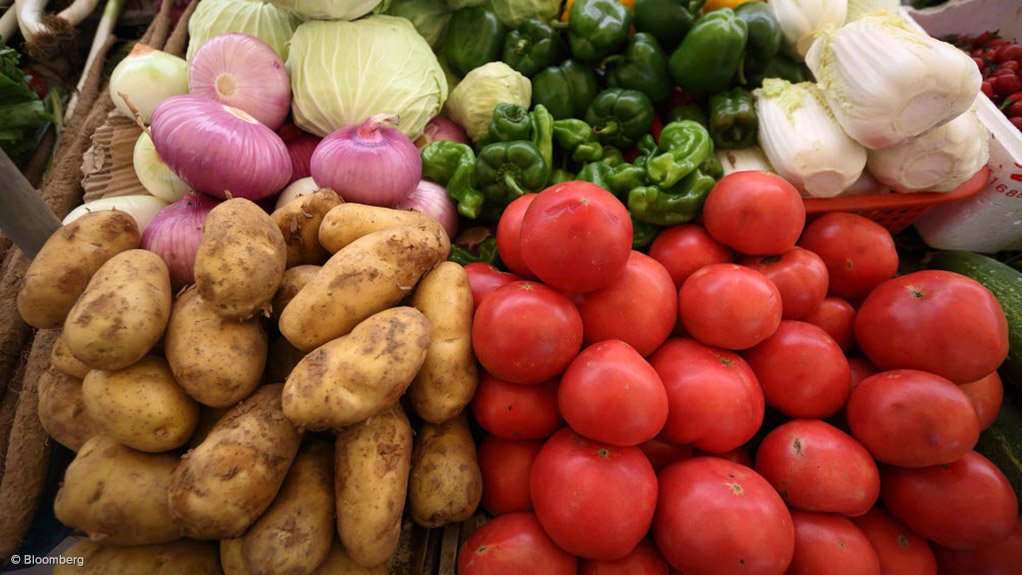While overall inflation has come down in recent months to its lowest level since October 2021, food inflation remains at nearly twice the inflation rate for all goods and services.
The Competition Commission says in its latest ‘Essential Food Price Monitoring’ (EFPM) report that it will be monitoring essential food prices and prices throughout the value chain to see whether consumers are being harmed by the state of competition throughout food value chains.
The commission is analysing how quickly declining commodity prices in the first half of this year are translating into lower prices for consumers, finding that these price drops in commodities have not consistently resulted in lower producer or retail prices, or have been delayed in doing so, while producers and retailers face other cost pressures.
When comparing South Africa’s retail profits over the past three to four years to that of findings by competition authorities in Canada, Ireland and the UK, the commission reports that local retailers are much more profitable than their counterparts in these countries.
This could be owing to differences in the level of competition, it suggests.
Additionally, in some markets, such as the UK, retailer margins are decreasing as discounters gain prominence, while in South Africa, margins increased between 2019 and 2022 before a recent decline – primarily attributed to loadshedding costs.
“The latest EFPM confirms work done by other researchers who have found evidence of the rocket-and-feather effect in local staple food value chains, where prices rise quickly during inflationary periods and decline slowly when inflation subsides,” the commission notes.
Various explanations have been posed for this phenomenon, with the key concern being the potential dysfunction of competition, it adds.
Other key findings in the EFPM include that bread and wheat prices – lagged three months to reflect the time to feed into producer stock – fell by about 10% during the first quarter of the year, but producer and retailer prices for bread both rose by 3% during this period, and only started to drop in the second quarter of the year.
White maize prices – also on a three-month lag basis – have fallen consistently and by 23% since February, but producer and retail prices for maize meal have yet to decline.
Cooking oil prices have been on a declining trend since a year ago when the EFPM report indicated that producer prices were rising despite sunflower seed prices remaining stable in South Africa. However, while retailers cut their margins during the period of rising prices, they have been slower to reduce prices, resulting in expanding margins.
More recently, sunflower seed prices have dropped but producer prices have still not responded.
Moreover, individual quick frozen chicken price inflation remains lower than food inflation, which the commission will continue monitoring following the reimposition of anti-dumping tariffs.
Further, the commission finds some of the large food companies have recorded big revenue increases as a result of price increases rather than volume growth. Some producers, except for poultry producers, have indicated that loadshedding costs have not had a material impact on their businesses.
The EFPM also points to a trend in the beef industry of it becoming increasingly concentrated, with more companies vertically integrating across several points of the value chain.
In particular, the number of commercial cattle farmers in the country has more than halved in the last ten years, and the top ten cattle feedlots account for almost 70% of cattle, up from 50% six years ago.
Additionally, the commission finds that feedlots are increasingly integrated into abattoirs and the top ten companies slaughtered close to 50% of cattle.
During 2023, weaner calf prices have declined substantially, resulting in lower prices for beef carcasses too. However, the retail price for beef cuts collectively has not declined this year, resulting in the retailer share reaching 40% of the shelf price – the highest share since January 2021.
The commission concludes that upstream easing of inflation in commodities has not translated into lower prices for consumers, which is the case in all value chains that the commission tracks.
Unfortunately, this has coincided with severe loadshedding that has invariably played a role in slowing the pace of downward price transmission.
However, the financial results of food companies show a mixed picture on the costs of loadshedding, which calls for a measure of caution when explaining its role in food prices.
Even with the additional effects of loadshedding, the rocket-and-feather effect has been a longstanding feature of food value chains in South Africa, which indicates that these value chains at the producer and retail level are not as competitive as they could be, the commission states.
EMAIL THIS ARTICLE SAVE THIS ARTICLE ARTICLE ENQUIRY
To subscribe email subscriptions@creamermedia.co.za or click here
To advertise email advertising@creamermedia.co.za or click here











